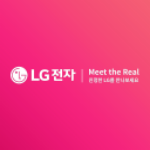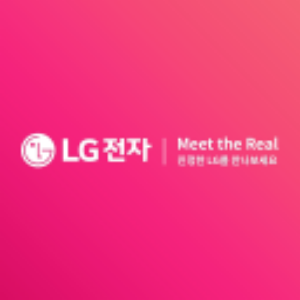Welcome to our dedicated page for Lg Electronics news (Ticker: LGEJY), a resource for investors and traders seeking the latest updates and insights on Lg Electronics stock.
LG Electronics Inc. (LGEJY) delivers cutting-edge innovations across consumer electronics, smart home ecosystems, and AI-driven solutions. This dedicated news hub provides investors and industry professionals with timely updates on corporate developments, strategic initiatives, and technological breakthroughs.
Access official press releases alongside curated analysis covering earnings reports, product launches, and partnership announcements. Track LG's advancements in IoT connectivity, display technologies, and sustainable business practices through verified updates from multiple reliable sources.
Key content areas include executive leadership updates, R&D milestones in AI/robotics, smart appliance innovations, and global market expansions. Our aggregation ensures you never miss critical developments affecting LG's position in consumer tech and B2B solutions.
Bookmark this page for streamlined monitoring of LG's evolving strategies in connected living technologies and cross-industry collaborations. Check regularly for authoritative updates supporting informed analysis of LGEJY's market performance.
LG Electronics (OTC:LGEJY) announces its fourth year as Headline Partner at Frieze Seoul 2025 with a special exhibition titled "Park Seo‑Bo x LG OLED TV: Colors Drawn from Nature" running from September 3-6, 2025.
The exhibition showcases renowned Korean artist Park Seo-Bo's nature-inspired artwork through LG's OLED TV technology, featuring a unique T-shaped installation with the latest OLED evo G5 and M5 TVs. The display includes an AI-collaborated digital reimagining of Park's work by artist Je Baak.
Additionally, LG introduces LG Gallery+, a new app on the webOS platform that brings the Frieze art fair experience into homes, offering free viewing of over 100 select artworks from Frieze Seoul, including Park Seo-Bo's works, for a limited time.
LG Electronics (OTC:LGEJY) will showcase its vision for future mobility at IAA MOBILITY 2025 in Munich this September. The company will host a special session titled "Redefining the In-Cabin Experience: Why the Automotive Content Ecosystem Matters," featuring President Eun Seok-hyun of LG Vehicle Solution Company.
The presentation will highlight LG's Automotive Content Platform (ACP) powered by webOS, which aims to transform vehicles into content-centric, connected environments. The company will announce new strategic partnerships with global digital entertainment and communication leaders to enhance the in-vehicle content ecosystem.
LG Electronics (OTC:LGEJY) has announced the expansion of its webOS Automotive Content Platform (ACP) to Kia's European models, starting with the EV3 and extending to the upcoming EV4, EV5, and New Sportage. The platform, part of LG's AlphaWare SDV solution suite, will enable in-car streaming services including Netflix, Disney+, YouTube, and other major content providers.
The automotive-optimized webOS platform, which currently powers over 240 million LG Smart TVs globally, will transform vehicles into entertainment hubs while maintaining safety compliance. The content library will expand later in 2025 to include Rakuten TV, Napster, and Joyn. Video streaming services will be available only when the vehicle is parked.
LG Electronics (OTC:LGEJY) has unveiled an ambitious strategic roadmap to become a top-tier global HVAC solutions provider by 2030. The company aims to achieve KRW 20 trillion in HVAC revenue through its "3B strategy" (Build, Borrow, Buy) and expansion of industrial B2B operations.
Key initiatives include scaling data center cooling solutions with an expected sales target of USD 720 million within two years, acquiring Norway's OSO for water heating solutions, and increasing non-hardware revenue share from 10% to 20%. LG is also strengthening its global presence through localization efforts, including a new production line in India with 1.5 million unit annual capacity by 2026 and expanding its HVAC Academy network to 70 locations by end-2025.
LG Electronics India (LGEIL) has begun construction of its third manufacturing plant in Sri City, Andhra Pradesh, with operations expected to start by end of 2026. The company plans to invest $600 million (INR 5001 crores) over the next four years. The facility, spread across 247 acres, will create approximately 1,495 direct jobs and manufacture AC compressors, refrigerators, washing machines, and air conditioners.
This strategic expansion will enhance LGEIL's production capacity, strengthen its South Indian supply chain, and further localize production. The plant joins existing facilities in Greater Noida and Pune, positioning India as a crucial hub in LG Electronics' global supply chain. The project is expected to attract ancillary businesses, creating a white goods manufacturing ecosystem in Andhra Pradesh.
LG Electronics (LGEJY) reported record-breaking Q1 2025 financial results with consolidated revenue of KRW 22.74 trillion and operating profit of KRW 1.26 trillion. This marks the sixth consecutive year of Q1 operating profit exceeding KRW 1 trillion.
The company's success was driven by strong performance across key segments:
- Home Appliance Solution: Revenue up 9.3% to KRW 6.70 trillion, operating profit increased 9.9% to KRW 644.6 billion
- Vehicle Solution: Record revenue of KRW 2.84 trillion with KRW 125.1 billion operating profit
- Eco Solution: Revenue grew 18.0% to KRW 3.05 trillion, operating profit up 21.2% to KRW 406.7 billion
- Media Entertainment: Revenue at KRW 4.95 trillion with KRW 4.9 billion operating profit
LG Electronics (LGEJY) has received Toyota Motor North America's 2024 Excellent Value Improvement Award for the first time at TMNA's Annual Supplier Business Meeting. The recognition highlights LG's exceptional performance in component quality, technological innovation, and cost optimization initiatives in North America.
The company has been Toyota's partner since 2011, initially supplying Navi-box components and expanding to advanced telematics solutions in 2019. LG's Vehicle Solution Company provides cutting-edge telematics control units (TCUs) featuring 5G connectivity, Vehicle-to-Everything (V2X) communication, and enhanced cybersecurity measures.
The award evaluation considered multiple criteria, including technology development, supplier diversity, value improvement, quality, and value chain promotion. LG demonstrated outstanding delivery performance and manufacturing improvement, particularly in the post-pandemic environment.
LG Electronics (LGEJY) has been awarded the prestigious 'Creativity Team Award' at General Motors' 33rd annual Supplier of the Year event in Arizona. The recognition highlights LG's excellence in redefining in-vehicle entertainment and connectivity solutions.
The company's partnership with GM dates back to 2006, marking this as their seventh recognition at GM's supplier awards. LG's achievements include three Overdrive Awards (2016, 2022, 2023) and Innovation Awards in 2017 and 2020. Additionally, LG has maintained exceptional performance in parts supply, earning the On-Time Shipping Gold Award for maintaining a 99% success rate from 2022-2024 for GM North America, and the Platinum Award for achieving 100% on-time delivery to GM Korea and Brazil in 2023.
LG joins an elite group of 92 suppliers across 12 countries recognized in GM's 2024 Supplier of the Year list, selected based on performance across safety, innovation, and resilience criteria.
LG Electronics (LGEJY) has reported preliminary Q1 2025 earnings with record-breaking consolidated revenue of KRW 22.7 trillion and operating profit of KRW 1.3 trillion. This marks the first time LG's Q1 revenue exceeded KRW 22 trillion, with operating profit surpassing KRW 1 trillion for the sixth consecutive year.
Growth was primarily driven by the Eco Solution (ES) business in B2B sectors, alongside strong performance in subscription services, webOS-based advertising, and D2C sales. The home appliance division maintained global market leadership in premium products, while the vehicle solution business expanded in high value-added products, particularly in-vehicle infotainment systems.
The company's HVAC business began operating independently in Q1, securing major overseas contracts and focusing on commercial and residential markets with AI-powered innovations. Profitability was supported by efficient resource allocation, normalized raw material and logistics costs, and enhanced global production operations.
LG Electronics unveiled its 2025 business strategy, focusing on building structural competitiveness and accelerating qualitative growth. CEO William Cho highlighted the company's progress in subscription services and webOS-based business, which saw revenue rise over 75% YoY in 2024, approaching KRW 2 trillion.
The company plans to expand its platform-based services business by more than five times by 2030, aiming to account for 20% of total operating profit. The webOS-based advertising and content business exceeded its KRW 1 trillion revenue target last year.
LG is strengthening its B2B sector, particularly in HVAC, through the new LG Eco Solution Company. B2B revenue increased from 27% of total revenue in 2021 to 35% by end of last year, with a target of 45% by 2030. The company is also revamping its R&D portfolio, with over 75% focusing on strategic business technologies and future fields like quantum computing.


